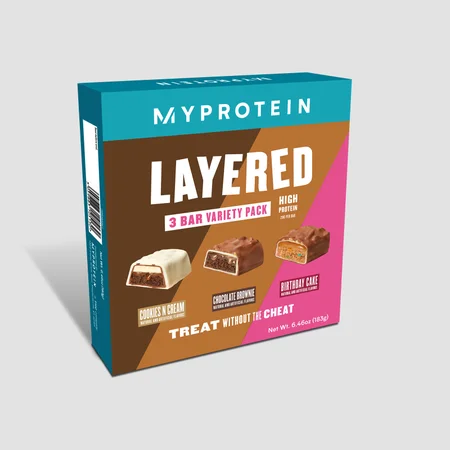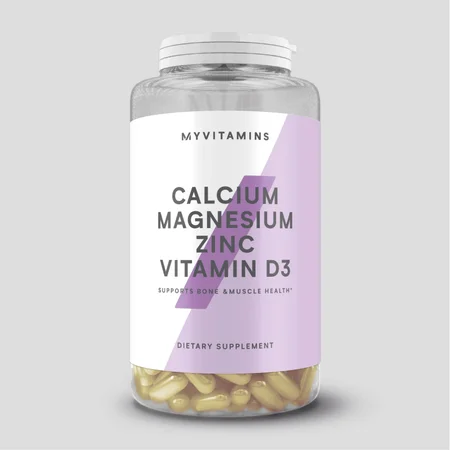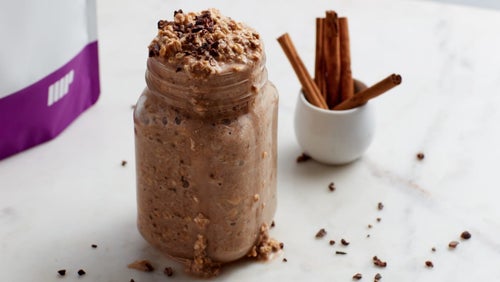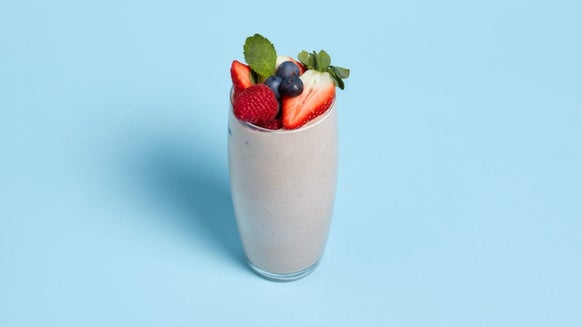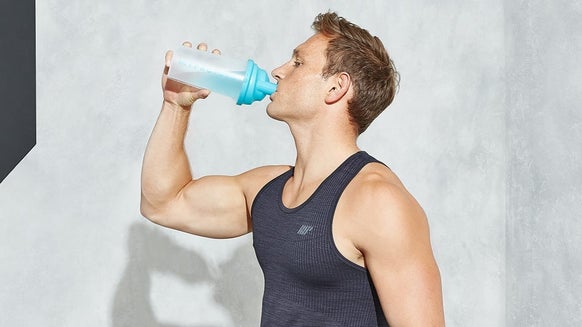Esports Nutrition: How Important Is It?
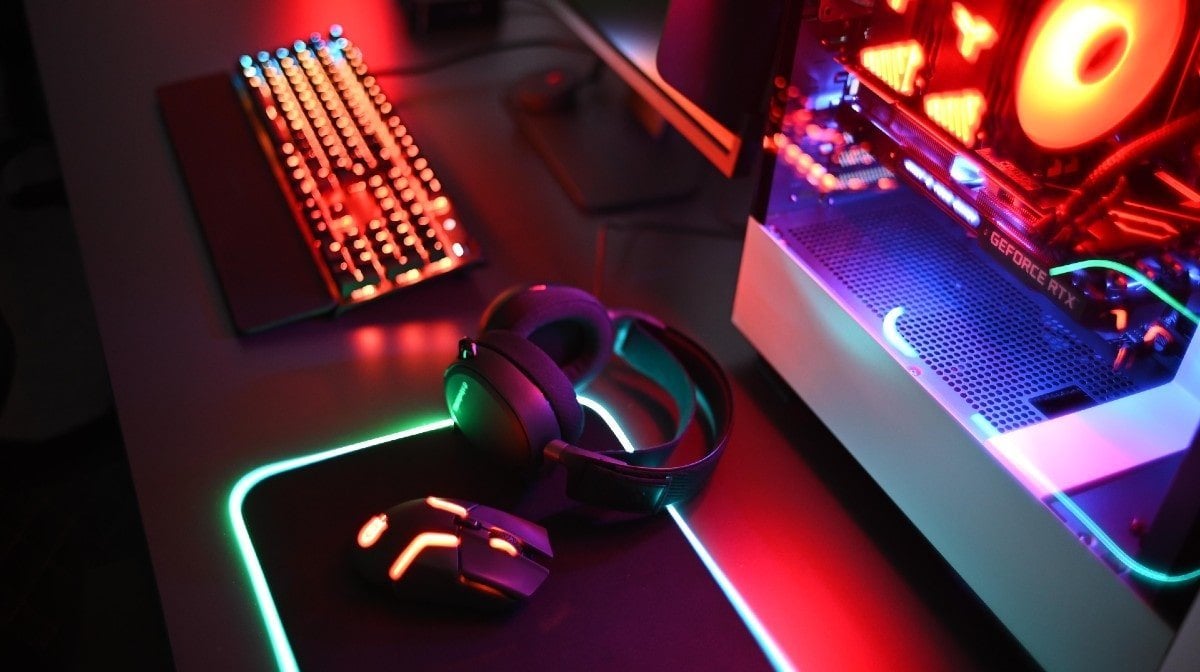
Esports is one of the fastest growing sports in the world, but the intensive demands placed on esports athletes are less well understood.
As the sport continues to increase in popularity and competitiveness, professional gamers must focus on their nutrition to up their game. How you fuel your body is critical to how you feel and function. Like other athletes, esports athletes must follow a nutrition program that enables them to perform at their best.
There are many different aspects to consider when it comes to esports nutrition. What and when you eat can have a major impact on your energy levels, focus, and overall performance. It’s important to find a balance that works for you and to fuel your body with the nutrients it needs to win.
In this article we’re going to cover all things esports nutrition, going through what foods and nutrients you’ll want to include if you want to reach the next level.
Why is nutrition important in esports training?
While the physical demands of esports are clearly different from other sports, there are certain elements that overlap and, in some instances, require greater demand than other sports.
Unlike other sports, there aren’t any real “easy” tapering sessions for esports athletes. Rather, they must maintain similar levels of intense focus and effort for up to 12 hours a day while practicing.
Sleep, movement and stress management all play important roles in performance, but nutrition is what ensures they are performing physically and mentally at their best. The healthier a player is outside of the sport, the better they will perform within it.
The margins of success are razor thin in esports, so maintaining overall health through things such as nutrition is important. Split-second decision making, strategy planning, and problem solving are a few of the constant demands placed on esports players.
Despite this, many competitors fail to understand the cognitive demands of competitive esports and do not prepare for competition in a way that would give them the best chance of success. (1)

Benefits of improved nutrition in esports training
Poor eating habits are associated with reduced cognitive function. (2) This may be partially explained by increased brain inflammation caused by high fat and high sugar diets. (3,4) On the other hand, a healthier diet is associated with optimum mental performance. (5)
Given the nature of esports and its demands, game day nutrition as well as everyday nutrition are incredibly important. Players need to have strategies in place for both to reach optimum performance.
If esports athletes perfect their nutrition programs, they may see some of the following benefits:
Concentration:
A well-regulated blood glucose level is one of the most important contributors to cognitive function and concentration. (6) Some esports players have poor quality diets high in added sugars. These sugars can lead to erratic swings in blood glucose levels, which can affect brain function.
A good way to regulate blood sugar and concentration is by minimizing intake of foods high in added sugars and prioritizing complex carbs and fiber. Oats are good for breakfast, whole grain carbohydrate sources (such as whole grain pasta or rice) throughout the rest of the day and fiber-rich fruits for snacks (like apples, pears, berries, etc).
Alertness and focus:
Caffeine is a stimulant that can help you stay alert and focused. It may also improve your reaction time and make you feel less tired. (7) This can be especially helpful during long esports tournaments.
For esports specifically, caffeine has been shown to directly improve performance. (8) This makes it an ideal choice for gamers who want a competitive edge.
If you're looking for a way to improve your esports performance, caffeine may be worth considering. Just be sure to use it in moderation and listen to your body to avoid any negative side effects. Too much caffeine can lead to jitters, anxiety, and insomnia. It's best to start with small amounts and see how your body responds.
The COMMAND Nootropic blend is a great choice for gamers. A sugar-free source of caffeine with plenty of vitamins, minerals and other ingredients aimed at supporting cognitive function and performance.
How to improve your nutrition
Nutrition can be achieved one step at a time or with an entire overhaul.
One of the best diets to follow is the Mediterranean diet. It consists mainly of whole grains, legumes, vegetables, fruit, and a modest amounts of fish, dairy and olive oil. The diet is rich in many nutrients associated with good cognitive function. (9)
Learn more about the Mediterranean diet here:
If an entire overhaul of your diet seems a bit daunting, then there are a few simple changes you can make:
Healthy brain, better performance
The quality of your dietary fat intake can have a significant impact on brain performance. The ingestion of higher amounts of “healthy” fats (namely unsaturated fatty acids) has been associated with better cognitive function when compared to “unhealthy” fats (saturated and trans fatty acids). (10)
The ingestion of trans fatty acids has been strongly linked with worse cognitive ability, and they may even interfere with the availability of omega-3 fatty acids. (11,12)
Omega-3 fatty acids are incredibly important to brain health and have been associated with the ability to help athletes make better decisions. (13) Eating plenty of oily fish throughout the week (salmon or mackerel for example), adding chia seeds to your breakfast or even supplementing with omega-3 fatty acids are all great ways of increasing your omega-3 intake.
Pros prioritize protein
Protein for gamers may be surprising to some, but it’s an incredibly important macronutrient for all competitive athletes. While esports players may not have the same physical or recovery demands as other sports, that doesn’t mean they won’t benefit from an increased protein intake.
Protein can help regulate blood glucose levels, which we know directly affects cognitive performance, while also helping to manage body weight. (14,15)
There are many protein sources you can eat to increase your intake: egg whites, protein powder, yogurt, lean meat, lean fish, tofu, beans and legumes are all great options. A few simple ways to incorporate protein would be to add a scoop of protein powder to your breakfast oats or to have yourself a lean meat wrap or bagel for lunch.
There are also a whole range of high protein snacks on the Myprotein website you’ll want to check out. One great option is the SELF REVIVE meal replacement shake, which makes it easy to get that extra protein in. Packing 18g of protein and a whole range of other vitamins, minerals and nutrients, the SELF REVIVE shake is ideal for full days of training and competing.
Why is esports nutrition so important?
Esports is still a young sport, comparatively. As it continues to increase in popularity and becomes more accessible, the level of competition will only increase.
With that, players will need to look for every possible advantage they can get, and it’s difficult to find an advantage that is more significant than nutrition.
If you want to make a career in esports, then you’ll have to behave like a professional athlete and focus heavily on nutrition.
Take home message
Fueling yourself the right way can give you the competitive edge over your opponents. When the margins are so fine, you have to do everything you can to make sure that you’re the one that’s coming out on top.
What you put into your body will ultimately determine how you perform. How you perform will affect whether you come out on top in game-changing situations — fuel yourself properly and you and your team might find yourselves coming out victors more often than not.
Want to read more?
READ THESE NEXT:

10 High-Protein Game Day Recipes
You might not be throwing a game day party this year, but good food is still a must.

- Schütz, M. (2016). Science shows that eSports professionals are real athletes. Retrieved from https://www.dw.com/en/science-shows-that-esports-professionals-are-real-athletes/a-19084993. Accessed: 22/01/2020.
- Wright, R. S., Gerassimakis, C., Bygrave, D., Waldstein, S. R. (2017). Dietary Factors and Cognitive Function in Poor Urban Settings. Current nutrition reports, 6(1), 32-40. https://doi.org/10.1007/s13668-017-0186-x.
- Pistell, P. J., Morrison, C. D., Gupta, S., Knight, A. G., Keller, J. N., Ingram, D. K., Bruce-Keller, A. J. (2010). Cognitive impairment following high fat diet consumption is associated with brain inflammation. J Neuroimmunol, 219(1-2), 25-32. https://doi.org/10.1016/j.jneuroim.2009.11.010.
- Yeomans, M. R. (2017). Adverse effects of consuming high fat-sugar diets on cognition: implications for understanding obesity. Proc Nutr Soc, 76(4), 455-465. https://doi.org/10.1017/s0029665117000805.
- Spencer, S.J., Korosi, A., Layé, S. et al. (2017). Food for thought: how nutrition impacts cognition and emotion. npj Sci Food 1, 7 https://doi.org/10.1038/s41538-017-0008-y
- Bernard, B. N., Louise, L. C., Louise, D. (2018). The Effects of Carbohydrates, in Isolation and Combined with Caffeine, on Cognitive Performance and Mood-Current Evidence and Future Directions. Nutrients, 10(2), 192. https://doi.org/10.3390/nu10020192
- Lorenzo Calvo, J., Fei, X., Domínguez, R., & Pareja-Galeano, H. (2021). Caffeine and Cognitive Functions in Sports: A Systematic Review and Meta-Analysis. Nutrients, 13(3), 868. https://doi.org/10.3390/nu13030868j
- Sainz, I., Collado-Mateo, D., & Coso, J. D. (2020). Effect of acute caffeine intake on hit accuracy and reaction time in professional e-sports players. Physiology & behavior, 224, 113031. https://doi.org/10.1016/j.physbeh.2020.113031
- Radd-Vagenas, S., Duffy, S. L., Naismith, S. L., Brew, B. J., Flood, V. M., Fiatarone Singh, M. A. (2018). Effect of the Mediterranean diet on cognition and brain morphology and function: a systematic review of randomized controlled trials. Am J Clin Nutr, 107(3), 389-404. https://doi.org/10.1093/ajcn/nqx070.
- Cao, G. Y., Li, M., Han, L., Tayie, F., Yao, S. S., Huang, Z., . . . Xu, B. (2019). Dietary Fat Intake and Cognitive Function among Older Populations: A Systematic Review and Meta-Analysis. J Prev Alzheimer’s Dis, 6(3), 204-211. https://doi.org/10.14283/jpad.2019.9
- Golomb, B. A., Bui, A. K. (2015). A Fat to Forget: Trans Fat Consumption and Memory. PLoS One, 10(6), e0128129-e0128129. https://doi.org/10.1371/journal.pone.0128129
- Kaur, N., Chugh, V., Gupta, A. K. (2014). Essential fatty acids as functional components of foods- a review. Journal of food science and technology, 51(10), 2289-2303. https://doi.org/10.1007/s13197-012-0677-0.
- Lewis, N. A., Daniels, D., Calder, P. C., Castell, L. M., & Pedlar, C. R. (2020). Are There Benefits from the Use of Fish Oil Supplements in Athletes? A Systematic Review. Advances in nutrition (Bethesda, Md.), 11(5), 1300–1314. https://doi.org/10.1093/advances/nmaa050
- Azzout-Marniche, D., Gaudichon, C., & Tomé, D. (2014). Dietary protein and blood glucose control. Current opinion in clinical nutrition and metabolic care, 17(4), 349–354. https://doi.org/10.1097/MCO.0000000000000062
- Hansen, T. T., Astrup, A., & Sjödin, A. (2021). Are Dietary Proteins the Key to Successful Body Weight Management? A Systematic Review and Meta-Analysis of Studies Assessing Body Weight Outcomes after Interventions with Increased Dietary Protein. Nutrients, 13(9), 3193. https://doi.org/10.3390/nu13093193


